I started training with barbells when I was seventeen years old during my senior year in high school. Our weight room was the size of a large closet, and included a bench press and a Universal machine. But it wasn’t until I had graduated that I discovered powerlifting after joining a commercial gym. I was hooked! The feeling of lifting weights that were heavy was exciting. Seeing the barbell bend while sitting in the rack, waiting for me to lift it, was exhilarating, to say the least
I started using kettlebells off and on in 2003 while I was still competing in powerlifting. I didn’t really know how to use them properly or how to integrate them with my powerlifting training. I attended the NSCA National Conference in 2004, where I met Pavel for the first time. He invited me to attend an RKC Certification workshop. I finally took him up on the offer in April 2006.
After becoming an RKC, I slowly started to integrate kettlebell training into my powerlifting regimen, figuring the kettlebell training could only help my powerlifting. As I got more into using the kettlebells, I even started to have training sessions that revolved solely around the use of them, especially during my off season.
Now, going into my eighth season of playing semi-pro football, powerlifting and kettlebell training are fully integrated within my training cycles. I could never imagine doing one without the other. They feed off of each other, helping the other perform better.
Kettlebells, Barbells, and Bodyweight, Oh My
When Pavel started StrongFirst and informed us he would not only be having Kettlebell Certifications but also Barbell and Bodyweight Certifications, I was very excited. Since becoming part of the leadership back in 2007, I cannot tell you how many emails, calls, and texts I have received asking my advice on how to combine kettlebell, barbell, and bodyweight exercises into a comprehensive training program.
Now, the creation and formation of StrongFirst and the addition of the Barbell (SFL) and Bodyweight (SFB) Certifications and Courses will help to further educate and teach all who take these Certs on the nuances of barbell and bodyweight training.
The Kettlebell Comes First
Before you can attend the SFL Certification, completion of an SFG Kettlebell Course or an SFG Kettlebell Instructor Level I Certification is a prerequisite. Why is this?
I didn’t learn any of the kettlebell techniques or ways of training before I started lifting at age seventeen and I have had a successful powerlifting career. Yes, while this is true, knowing what I know now, I would have shaved off years of experimenting and trial and error if I had the knowledge that I do now.
Plus, the SFL builds on principles that are taught during the SFG Certifications/Courses that are intended to decrease the learning curve and speed up your success with the barbell. You will get much more out of the SFL Certification by building on these skills.
But Barbells Should Definitely Come Next
I get asked a lot by SFGs why they should venture out of the kettlebell world that they know so well. My answer is this:
- You should always strive to sharpen your sword and add to your existing knowledge base. You may not use it like I do, but you will nonetheless become better for it and so will your clients.
- What you have already learned while becoming an SFG will serve you well during the SFL. You will see, hear, and review drills and coaching cues you already know. You will expand on them to help you learn and become proficient in using and training with the barbell.
- Most SFGs want to be strong. You have already created the foundation. Attending this SFL will help make you stronger, physically and mentally. For whatever purpose you may have.
In celebrating my twentieth year of being a chiropractic physician, I can honestly tell you that being strong is a huge health benefit. I am not just referring to me, but I am also talking about my patients and humans in general.
I have treated thousands of patients during these past twenty years and those who are stronger tend to recover faster from injuries, have a better mental attitude, and stay out of the nursing home longer. I still have not found any disadvantage to being strong. It is always an advantage in life.
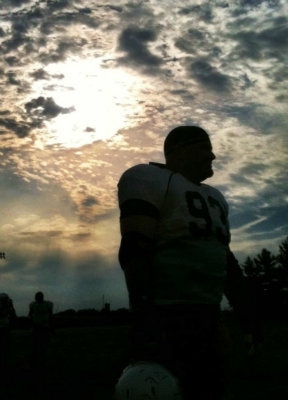
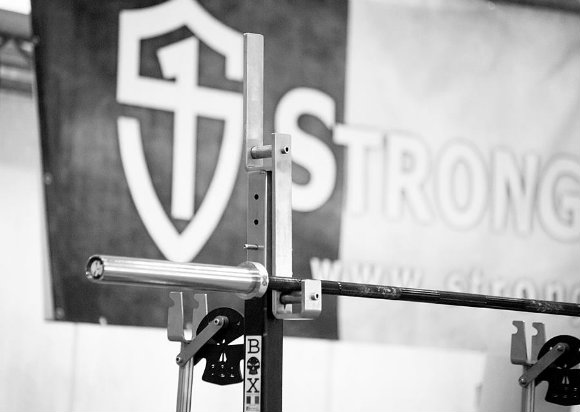
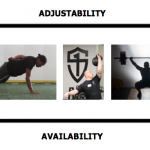
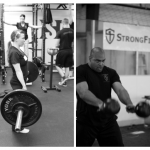
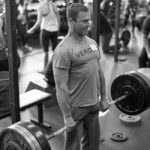
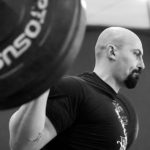
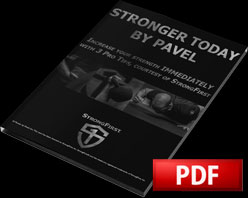
There’s only one disadvantage of being strong that I found. People always want you to help them move 😛
Thanks for the post! Kettlebells should be a part of any routine. But what are your thoughts on going kettlebell-only?
strong for life with KB in my book